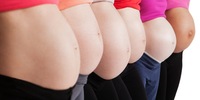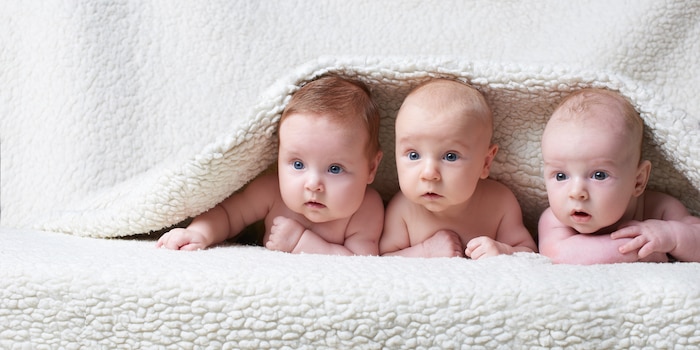
News + Trends
2021 saw the highest number of babies in a long time
by Katja Fischer

During the pandemic, more babies were born in Switzerland than at any time in recent memory. Now comes the collapse: according to a new statistics report, the birth rate is at its lowest level since 2012. Experts are puzzling over the reasons.
The brief baby boom is over. This is according to the newly published report from the Federal Statistical Office (FSO): 82,371 children were still born in Switzerland in 2022 - eight per cent fewer than in the previous year. In 2021, the year of the pandemic, there were 89,644, but that was a comparatively "high birth rate year", as the FSO announced on Thursday.
Birth-rich previous year or not - the dip is big, it is the lowest figure since 2012. Or as the FSO puts it: it is a "pronounced decline in live births".
The low birth rate is unlikely to remain an exception. This is predicted by the latest provisional figures from cities: In Zurich, about the same number of babies were born between January and June 2023 as in 2022. In Bern, too, everything points to the figures for 2023 remaining at least as low as in the previous year.
The FSO does not want to specify the reasons. It says that there are "several possible causes" for the downturn. A combination of factors such as the financial situation and concerns about the future, for example.
In fact, drops in birth rates are a common phenomenon after crises such as a pandemic. This could be linked to the fear of a deterioration in health or social conditions, Léo Pomar from the University of Lausanne told the "Sonntags Zeitung" in spring. He analysed the development of births after the first lockdowns in 24 European countries. "After that, there is often a recovery in births, sometimes even a compensation," he says.
However, recovery takes a certain amount of time, as Susanne Grylka knows. The Head of Research at the Institute of Midwifery Science and Reproductive Health at the Zurich University of Applied Sciences has researched the effects of global crises on the number of births. She found that birth rates tend to recover slowly after a crisis. Younger couples who are not in a hurry to plan a family would postpone having children due to ongoing uncertainties. "Even now, many couples are probably still thinking, let's wait a little longer until we start a family," Grylka told "Der Bund".
However, this is still just speculation. There is no large-scale study in which couples of fertile age are surveyed. However, she is certain: "The decline in births is a trend, not a one-year thing."
Cover photo: Shutterstock
Mom of Anna and Elsa, aperitif expert, group fitness fanatic, aspiring dancer and gossip lover. Often a multitasker and a person who wants it all, sometimes a chocolate chef and queen of the couch.
From the latest iPhone to the return of 80s fashion. The editorial team will help you make sense of it all.
Show all